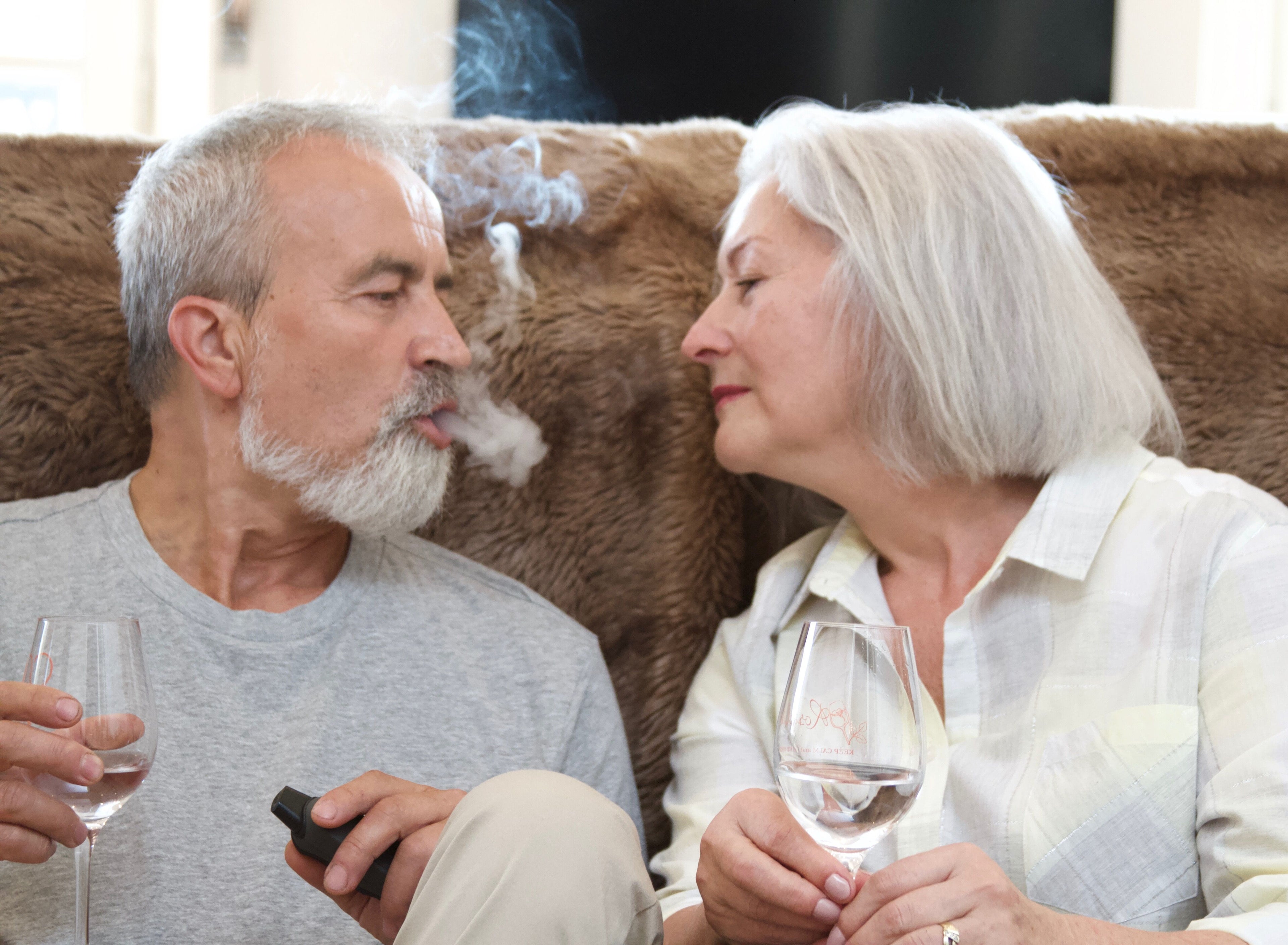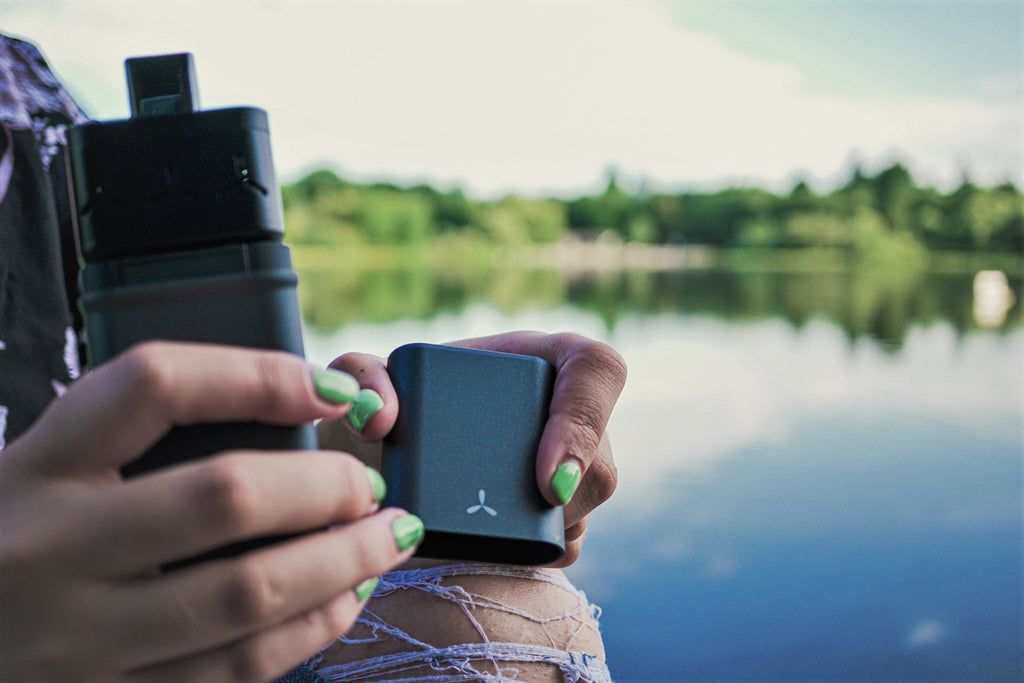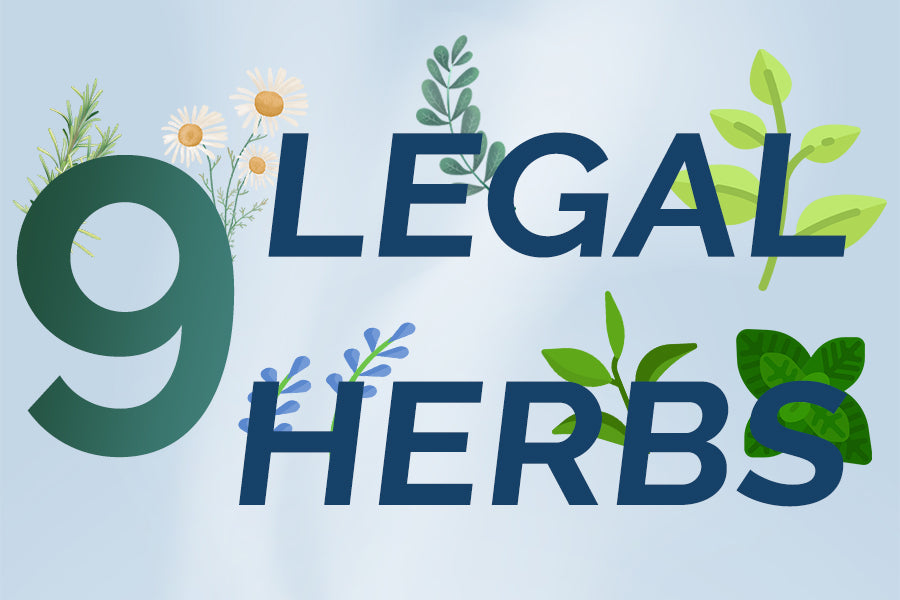The reasons behind your supernatural tolerance for loose leaf

Picture this: It's your very first experience with loose leaf. You're with a bunch of trusted friends who are there to help you through the process and they teach you how to inhale, how to let it all in and then blow out.
They tell you about their own first time while the roll the joint and give it to you to do the honors, since it's your very first time. You take it all in, just like they instructed, and you keep taking it all in, but you don't really get high.
You come away from it disappointed, but your friends tell you that not getting high your first time is a really common incidence. Besides, a bong hit or an edible will really kick things up a notch. So you try and take a bong hit or two as your friends egg you on but you still feel nothing. You're confused and angry. Why are all my friends able to have a good time but not me?

Not feeling high anymore? There might be several reasons for your ridiculously high tolerance, ranging from the pot to your genetics
Do you identify yourself in either of these scenarios? Well, chances are, the first scenario probably happened to you as it's a strikingly common experience. The second, however, has a longer explanation that's very rare and pretty unique.
Well, why do people not get high their first time?

For most people trying loose leaf for the first time, not getting high is usually because our body is not used to processing cannabinoids like THC and CBD
Well, for many people their first experience with loose leaf ranges from not getting high, to getting the giggles and even feeling scared or paranoid. For a significant number of people, a mellow or non-existing high is very commonplace.
One of the most readily accepted explanations for this is that when the human body is exposed to something completely new for the very first time it needs time to process this information. Our body takes a while to sort of register CBD and THC, especially since the cannabinoid receptors in our brain are mostly idle until we take a hit.
Once the brain knows that it’s loose leaf for sure, you start feeling high and there begins a joyous relationship with a godlike plant that fuels good times, creativity, munchies, and blissful sleep.
This is rather common with most first-time pot smokers. However, there is a smaller sub-set of people who have a really high tolerance to loose leaf, to the point that they need to have really high doses to feel any high or in some cases, not feeling high at all. It’s a really interesting phenomenon that’s caused due to many different aspects of our body interacting in certain ways, so let’s look into it!
Pregnenolone
Pregnenolone is a hormone secreted in our body that has some quirky effects when secreted in excess. They include loss of short term memory, feeling sleepy and lethargic among others, which is rather interesting because when this excess secretion takes place, it inhibits our endocannabinoid receptors (CB1 and CB2 receptors) to interact with.
Pregnenolone is also sold as a supplement of sorts over the counter, and if you have it you’ll quickly lose your high. It’s rather interesting, and this use of the hormone is a relatively new discovery as well. It explains why some people don’t feel as high as they think they should after x amount of hits or joints.

Pregnenolone is a hormone, when secreted in excess, causes our body to ignore or inhibit the effects of THC and CBD in some cases. It’s available as a vitamin in most pharmacies
When it comes to edibles and other ways through which dry herb is ingested orally, CBD and THC go through the liver, intestines, and stomach before interacting with the bloodstream, because of which a higher metabolism might make some people resistant to edibles as well, independent of pregnenolone secretion.
Genetic mutations
Some people have some wack genetics, man. There’s a lot of underlying processes that work together in our bodies to process the CBD and THC in loose leaf. Most of the genetic mutations are in our endocannabinoids (CB1 and CB2 receptors of our brain), found in the amygdala.
There are around 30 different types of mutations in these receptors, which directly affects how high a person may or may not feel. This doesn’t mean that people have all these different types of mutations present, it means that one of the mutations of the CB1 or CB2 receptors is the one that is present.
This is one of the reasons behind why people have different levels of tolerance when smoking up: our receptors don’t really function similarly, causing us to process pot differently.

Mutations within our Endocannabinoid System (ECS) makes people have more or less of a tolerance to weed & changes our brain chemistry to alter behavior, even without using pot
This seems fascinating and it really is, but some of these mutations are directly responsible for how a person’s life might turn out. Some of these mutations make people more susceptible to impulsive behavior, or from having mental health issues like anxiety and depression or even eating disorders and addictions to substances/things.
While more research continues to narrow down on cause and effect, isn’t it fascinating that our human body has evolved to the extent that there are specific receptors in our brain for only cannabis, and that its mutations could significantly alter a person’s physical and mental health?
Weed nay-sayers will claim this is triggered by the use of pot, but that doesn’t seem to be the case at all, which makes things so much more interesting (and conflicting for the nay-sayer, lol).
Our FAAH gene, responsible for enzymes that aid in the breakdown of cannabinoids like THC and CBD, has over 11 mutations and can lead to a person having a perfectly normal life to a dysfunctional one, riddled with addiction. It also shows variations in the way that a person reacts to cannabis, of course, but that seems secondary when a small aspect of our body is so capable of havoc (or benefit, this is very important).

Proteins and hormones and their mutations inside and outside the ECS can make us more susceptible to addictions, or disorders such as Crohn’s or anorexia
Some of these mutations reach beyond the parts of the body that are dedicated exclusively to CBD and THC. For example, some people have mutations in the AKT gene, which is a protein-based gene that’s got very little to do with cannabis receptors and the like.
This gene can prevent cells from dying and inhibit the growth of tissue, and is associated with many cancer types. Individuals with this mutation are more likely to make errors in judgment and motor reactions following cannabis use. That's because the AKT mutation in the individual changes how cannabinoids affect them.
Additionally, another important system of variations is found in the liver that’s not a part of the endocannabinoid system. Once cannabis is consumed by mouth, it passes through the digestive system into the liver until the cannabinoid enters into the bloodstream and brain. This could be through a swallowed tincture, tablets, or edibles like tea or a brownie.
The liver contains many enzymes (protein-based, very similar to AKT), which process a variety of drugs and chemicals. Delta-9-THC transforms into 11 -hyDoxy-THC. Basically, THC undergoes a bunch of chemical changes in our digestive system before shooting itself in the bloodstream, making us feel woozy and nice.

Our liver plays a huge role in processing loose leaf in our system, especially when ingested orally through the various enzymes present and does it the most efficiently in the body
How? Well, one of the more potent enzymes in the liver causes CB1 receptor activation and intoxication, more effectively than other enzymes. The quality and complex liver functions of our interaction with edible cannabis may have an effect on an unknown number of individual variations, which, much like cannabis itself, makes sense while also being infinitely complex and not making sense. Such is life.
Or you just need a T-break
Some people smoke every day all day, which causes most lightweights to become so high resistant that even Seth Rogan is like “nah bro, I’m goood, hehehehe”. You get the gist. This is the self intervention moment, where you realize, crisps on hand, mindlessly scrolling Netflix that there ought to be a better way to go about this.
And to be sure, this doesn’t mean that you shouldn’t smoke up at all, it’s just that taking 2-gram bong hits doesn’t make sense no more! So take a break from the pot and learn to live life without being so dependent on a plant, no matter how amazing it makes you feel, or not. You’ll help your cannabinoid receptors to recover from being so overloaded and bloated by giving it a break, after which you’ll be able to rediscover the wonders of pot.

Taking a tolerance break to reduce your resistance to loose-leaf might be of help
How long should it be? After a week, maybe two of religiously abstaining from pot, re-experience the joys of two drags and the onset of the giggles and munchies.
Even better, take after exercise on an empty stomach
While for those literally incapable of feeling high, this might not be a viable solution. However, for people with a high tolerance, working out and toking afterwards on an empty stomach will for sure make you feel a little more light-headed than usual. This is because our body is burning fat and tends to metabolise very quickly when hungry AND physically spent. Okay, this may not be better than a t-break for some, but it could help someone who doesn’t need a t-break but has a really high tolerance to finally feel the wonders of loose leaf.
For real though, we ought to be a bit better about educating ourselves (and pushing for everyone to educate themselves) about the good and bad about loose-leaf, for how else will we be responsible in literally saving the world through hemp paper, leather, plastic, milk, helping people with anxiety, depression, PTSD, motor-neuron diseases, insomnia and even cancer-related treatments!



